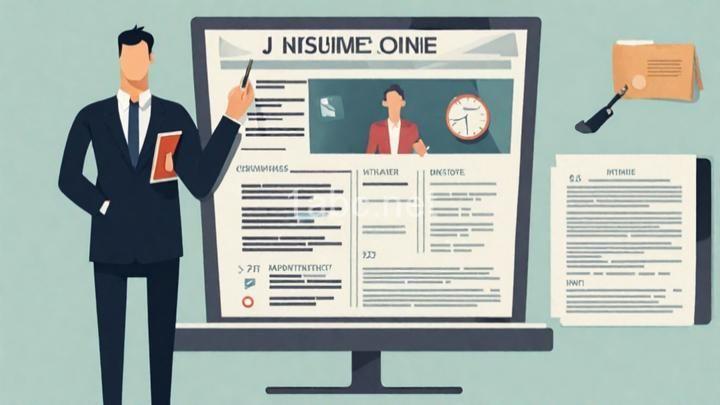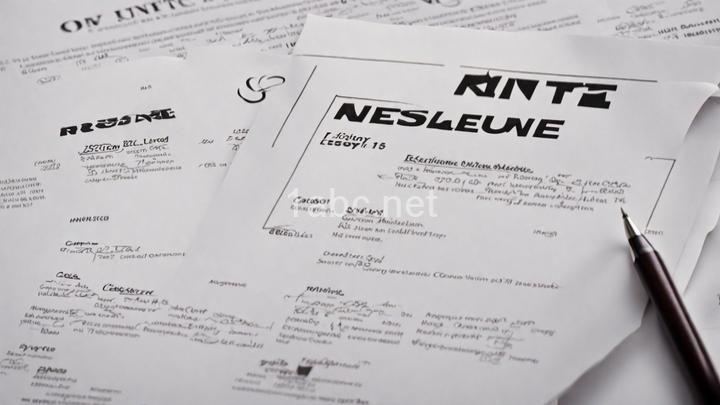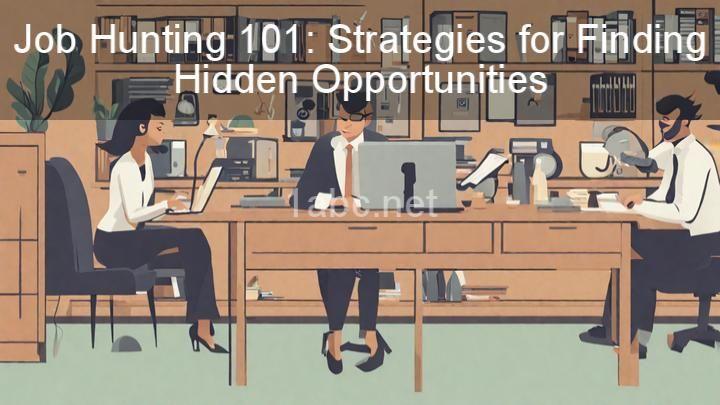Navigating Job Fairs: Making the Most of Your Experience

Introduction:
Hey there, job seekers! Are you ready to take charge of your career and make some serious connections? Well, you're in luck because today we're going to dive into the world of job fairs and show you how to make the most of your experience.
Job fairs are like treasure troves of opportunities, bringing together employers and job seekers all under one roof. They offer a unique chance to network, showcase your skills, and potentially land your dream job. But before we get into the nitty-gritty, let me share some interesting facts with you.
Did you know that over 80% of employers attend job fairs to recruit new talent? That means you have a golden opportunity to make a lasting impression on potential employers. And here's another eye-opening stat: 30% of job seekers who attended a job fair got hired as a direct result of their participation. So, let's dive in and discover how to navigate job fairs like a pro!
I. Preparing for the Job Fair
A. Researching Companies:
Before you step foot into the job fair, it's crucial to do your homework. Researching participating companies beforehand will not only impress potential employers but also help you tailor your resume and cover letter to match their needs. So, how do you gather this vital information?
Start by visiting the company's website. Look for details about their mission, values, and current job openings. Take note of any recent news or press releases, as this can give you valuable insights into their current projects or initiatives. Additionally, browse through LinkedIn profiles of employees who work at the company to get a feel for their backgrounds and expertise.
B. Perfecting Your Elevator Pitch:
Imagine stepping into an elevator with a hiring manager for your dream job. You have about 30 seconds to make an impression. That's precisely what an elevator pitch is all about – a concise and compelling introduction that highlights your skills and experiences.
Crafting an effective elevator pitch takes time and practice. Start by identifying your unique selling points and key accomplishments. Then, condense this information into a brief and engaging pitch. Remember, brevity is key here, as you want to grab the listener's attention without overwhelming them with unnecessary details.
Once you've crafted your elevator pitch, don't stop there. Practice delivering it with friends or family members. Ask for their feedback and make necessary adjustments. The more you practice, the more confident you'll become.
C. Dressing Appropriately:
First impressions matter, and your appearance plays a significant role in how potential employers perceive you. Dressing appropriately is essential to make a positive impression. But what does "dressing professionally" really mean?
The appropriate attire can vary depending on the industry or type of job fair you're attending. For more formal fields like finance or law, a business suit may be the way to go. For other industries like tech or creative fields, business casual attire might be more suitable. When in doubt, it's always better to err on the side of being slightly overdressed than underdressed.
Remember to pay attention to grooming and personal hygiene as well. Ensure your hair is neat, your nails are clean, and your breath is fresh. These small details can make a big difference in how you're perceived by potential employers.
II. Navigating the Job Fair
A. Creating a Game Plan:
Job fairs can be overwhelming, with countless employers vying for your attention. That's why creating a game plan is essential to make the most of your time. Before the event, research the list of participating companies and identify your target companies.
Once you have your target list, plan your route through the job fair. Start with your priority companies and strategically work your way through the event. This way, you won't waste time wandering aimlessly or miss out on networking opportunities.
B. Approaching Employers:
Approaching potential employers can be nerve-wracking, but it doesn't have to be. Remember, employers are at the job fair because they're actively seeking new talent. So, approach them with confidence and a friendly demeanor.
Maintain positive body language, such as making eye contact, standing tall, and offering a firm handshake. This will convey your enthusiasm and professionalism. When engaging in conversation, ask thoughtful questions that demonstrate your interest in the company and its values. This will show potential employers that you've done your research and are genuinely interested in what they have to offer.
C. Networking with Other Attendees:
While connecting with potential employers is crucial, don't forget about the power of networking with other attendees. Job fairs are a melting pot of talent, and building connections with fellow job seekers can open doors to new opportunities.
To initiate conversations, start by introducing yourself and asking about the other person's career goals or interests. Share your own experiences and offer support or advice where applicable. Remember, networking is a two-way street, so be open to helping others as well.
Don't forget to exchange contact information with those you connect with. This way, you can stay in touch after the event and continue building your professional network.
III. Making a Lasting Impression
A. Following Up:
Congratulations, you've made it through the job fair! But your journey doesn't end there. Following up with potential employers is a crucial step in solidifying your connection and demonstrating your continued interest.
Within a few days of the event, send personalized thank-you emails or letters to the employers you interacted with. Express your gratitude for their time and reiterate your interest in their company. This simple gesture can make a lasting impression and set you apart from other candidates.
B. Reflecting on Your Experience:
Attending a job fair is not just about getting hired; it's also a valuable learning experience. Take some time to reflect on your interactions, conversations, and overall experience at the job fair.
Identify areas where you excelled and where you could improve. Did your elevator pitch resonate with employers? Were you able to effectively communicate your skills and experiences? Analyze any feedback you received from employers or other attendees and use it to refine your approach for future job fairs.
Conclusion:
Phew! You made it to the end of our comprehensive guide to navigating job fairs. We hope you've found these tips helpful and feel more confident in making the most of your job fair experience.
Remember, job fairs are not just about landing a job – they're about making connections, gaining valuable insights, and learning more about the industries you're interested in. So, go out there, put your best foot forward, and make some incredible connections!
Thank you for joining us on this journey, and we invite you to share your own job fair success stories or tips in the comments section below. Together, we can empower each other to achieve our career goals. Good luck, job seekers!
FREQUENTLY ASKED QUESTIONS
What is the purpose of attending a job fair?
Attending a job fair serves several purposes. Firstly, it provides an opportunity to explore various job opportunities in one place. Job fairs often attract a wide range of companies from different industries, making it easier to gather information about potential employers and the positions they offer. This saves you time and effort in searching for job openings individually.Secondly, job fairs allow for face-to-face interactions with recruiters and hiring managers. This personal connection can make a lasting impression and help you stand out among other job seekers. You can ask questions, discuss your qualifications, and learn more about the company culture. It's a chance to showcase your skills and make a positive first impression.
Additionally, job fairs provide a platform for networking. You can meet other job seekers, professionals in your field, and even alumni from your alma mater who may have valuable insights or connections. Building a network of contacts can lead to future job leads and opportunities.
Furthermore, attending a job fair allows you to gather information about potential employers, their hiring processes, and the current job market. This information can help you tailor your application materials and interview strategies to the specific needs and preferences of the companies you are interested in.
In summary, the purpose of attending a job fair is to explore job opportunities, make personal connections with recruiters, network with professionals, and gather valuable information about potential employers. It can be an effective way to jumpstart your job search and increase your chances of finding a suitable position.
How should I prepare for a job fair?
Preparing for a job fair can greatly increase your chances of making a positive impression on potential employers. Here are some steps you can take to get ready:
-
Research the participating companies: Take the time to learn about the companies that will be attending the job fair. Look into their mission, values, and the types of positions they offer. This will help you tailor your approach and demonstrate your interest in their organization.
-
Update your resume: Make sure your resume is up to date and highlights your relevant skills and experiences. Customize it for each company you are interested in, focusing on the qualifications they are seeking.
-
Practice your elevator pitch: Prepare a brief introduction that summarizes your background, skills, and career goals. Practice delivering it in a clear and confident manner. This will come in handy when you have limited time to make an impression on recruiters.
-
Dress professionally: Dressing appropriately shows that you take the job fair seriously. Opt for business attire that is clean, well-fitted, and reflects the industry you are targeting.
-
Bring plenty of copies of your resume: It's important to have enough copies of your resume to distribute to different employers. Consider storing them in a professional-looking portfolio or folder to keep them organized.
-
Prepare questions: Prepare a list of thoughtful questions to ask employers. This will demonstrate your interest in their company and help you gather valuable information about potential opportunities.
-
Practice your networking skills: Brush up on your networking skills to effectively engage with recruiters and other professionals at the job fair. Be friendly, confident, and approachable.
-
Bring a pen and notebook: You'll want to jot down any important information or follow-up actions during the job fair. Having a pen and notebook handy will ensure you don't miss any important details.
-
Stay organized: Plan your route to the job fair in advance, and make sure you have all the necessary documents and materials ready the night before. Being organized will help you feel more prepared and less stressed on the day of the event.
-
Follow up after the job fair: After the event, send a personalized thank-you email to the recruiters you spoke with. Mention something specific from your conversation to help them remember you. This follow-up can leave a lasting impression and keep you on their radar.
Remember, preparation is key when it comes to job fairs. By taking these steps, you'll be ready to make a strong impression and increase your chances of landing a job opportunity. Good luck!
What should I bring to a job fair?
When attending a job fair, it's essential to come prepared. Here's a list of items you should bring with you:
-
Multiple copies of your resume: Make sure you have enough copies to distribute to potential employers. It's always better to be prepared for unexpected opportunities.
-
Business cards: If you have them, bring a stack of business cards with your contact information. This will make it easier for recruiters to remember you and follow up later.
-
Pen and notepad: Jotting down notes during conversations with employers can help you remember important details and follow up on specific points later.
-
Portfolio or work samples: If you have any tangible examples of your work, such as a portfolio or samples of projects, bring them along. This can give employers a better understanding of your skills and capabilities.
-
Research materials: It's a good idea to do some research on the companies attending the job fair beforehand. Bring along any notes or printed materials that can help you remember key information about the companies and their job openings.
-
Comfortable shoes: Job fairs can involve a lot of walking and standing, so wear comfortable shoes to keep your feet happy throughout the event.
-
Professional attire: Dressing professionally is crucial when attending a job fair. Even if the dress code is casual, it's better to err on the side of formality and present yourself in a polished and well-groomed manner.
Remember, being prepared and organized will help you make a positive impression on potential employers and maximize your chances of success at the job fair. Good luck!
How should I dress for a job fair?
When it comes to dressing for a job fair, it's important to strike the right balance between professional and approachable. Here are some tips to help you make a great impression:
-
Dress professionally: Opt for attire that is appropriate for the industry you're targeting. Generally, it's a good idea to dress slightly more formal than the company's everyday dress code. For example, if the company you're interested in usually dresses in business casual, consider wearing a suit or dress pants with a blazer.
-
Choose appropriate colors: Stick to neutral colors like black, gray, navy blue, or brown. These colors convey professionalism and are less distracting than bright or bold colors. You can add a pop of color with accessories like a tie, scarf, or statement piece of jewelry.
-
Pay attention to grooming: Make sure your hair is neatly styled, your nails are clean and trimmed, and your shoes are polished. These small details can make a big difference in your overall appearance.
-
Dress comfortably: While it's important to dress professionally, it's equally important to be comfortable. Opt for clothing that fits well and allows you to move freely. You'll be more confident and at ease during the job fair.
-
Avoid excessive accessories: Keep your accessories minimal and tasteful. Avoid wearing too much jewelry or accessories that may be distracting. Remember, you want the focus to be on your skills and qualifications, not your accessories.
-
Pay attention to hygiene: Ensure you have fresh breath, clean teeth, and a pleasant scent. This will help you make a positive impression when interacting with recruiters and potential employers.
Remember, dressing appropriately shows that you take the job fair seriously and are committed to making a good impression. By following these tips, you'll be well-prepared to make a lasting impact on potential employers. Good luck!



